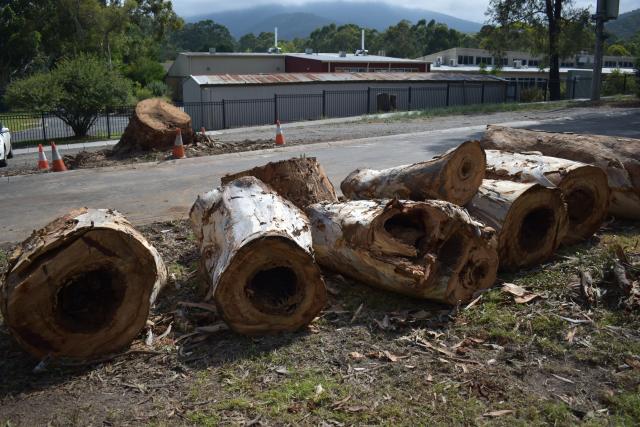The wind begun to rock the grass
With threatening tunes and low,
He flung a menace at the earth,
A menace at the sky.
The leaves unhooked themselves from trees
And started all abroad;
The dust did scoop itself like hands
And throw away the road.
-Emily Dickinson
We had been warned that bad weather was on the way; there were explanations of how the winds would possibly impact and there was talk of catastrophic conditions for some areas.
But then weather predictions have often been way off the mark and perhaps the cool summer brought complacency that once again we would escape a major weather event.
American Poet Emily Dickinson writing in the late 19 th century captured the ferocity of a storm, similar to the one last Tuesday across Victoria, zigzagging and choosing to impact
some areas whilst leaving others mildly affected as is the nature of some storms.
Its power was frightening: wind that uprooted trees, brought down powerline, horizontal rain and hail that lashed windows.
Then the noise of flying debris and property damage changed everything in minutes to something that resembled a war zone.
For most of us, unaccustomed as we are to inconvenience let alone deprivation, the power failure meant that, none of what we are accustomed to have at the flick of a switch or a click, was available: supermarkets, shops, cafes, ATMs and of course the Internet.
Suddenly there was no connectivity and since cash became the only accepted payment people panicked.
In my front garden there is now a huge mound of branches severed from the magnificent old maple tree that was the reason I chose this place to live.
The gutters are hanging by a thread and additional debris from far afield is strewn everywhere, brought about by the ferocious wind.
Up and down the roads around the area there is widespread tree damage and powerlines dislodged by the falling tree limbs. Big gum trees with their shallow root systems cling
precariously to steep banks.
One wonders if this is a tragedy waiting to happen.
There are so many questions we should be asking: from the obvious dereliction of duty in maintaining the infrastructure of our grid in good repair to the reluctance to properly maintain trees from impacting on powerlines, and perhaps acknowledging that certain trees should be removed, or at least maintained more stringently by arborists in areas where they could cause problems.
In this wide brown land of ours we have witnessed many times the powerful and destructive forces of nature that have captured the imagination of poets and scientists alike.
From bushfires, floods to cyclones stories of resilience are legion.
However that is not to diminish the fact that some have undoubtedly found the last week a struggle and overwhelming.
In her poem, The Fury of Rainstorms, Anne Sexton acknowledges feelings of despair and a desire for solace amid all the chaos generated by a storm.
However she decides that:
Depression is boring, I think
and I would do better to make
some soup and light up the cave.
It may be hard to choose to ignore that the temporary inconveniences we are experiencing pale into insignificance when put up against the constant unrelenting grind of daily survival for so many millions on this planet. And once the storm passes in the wake of its destruction hopefully comes a cycle of renewal.
The Fury of Rain Storms
The rain drums down like red ants,
each bouncing off my window.
The ants are in great pain
and they cry out as they hit
as if their little legs were only
stitched on and their heads pasted.
And oh they bring to mind the grave,
so humble, so willing to be beat upon
with its awful lettering and
the body lying underneath
without an umbrella.
Depression is boring, I think
and I would do better to make
some soup and light up the cave.







